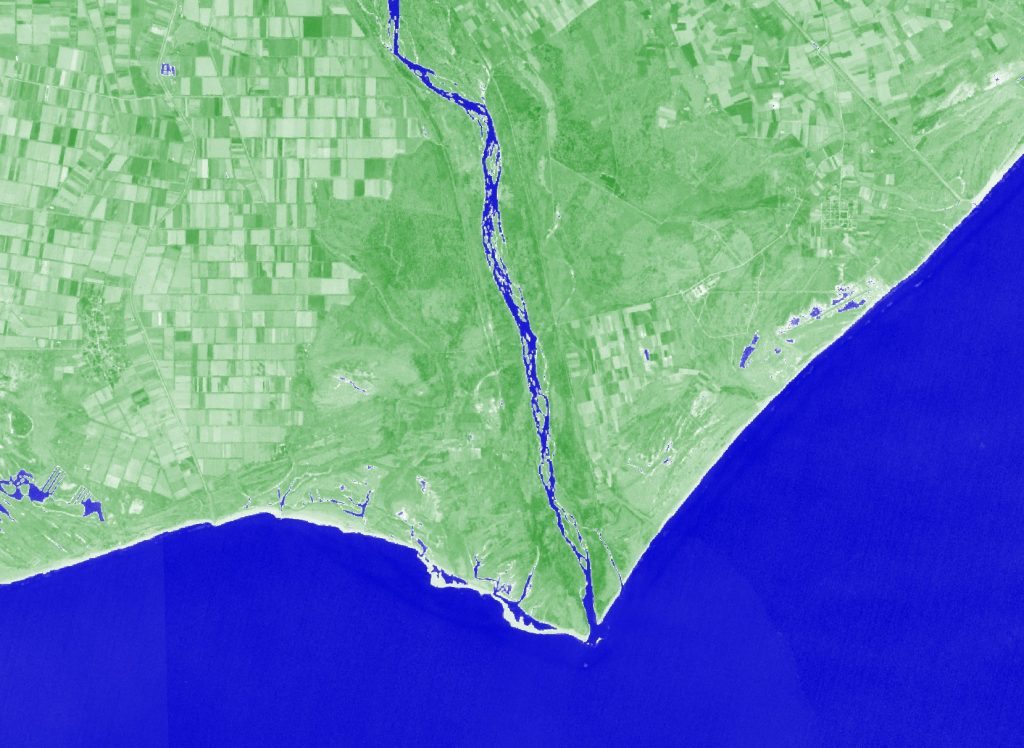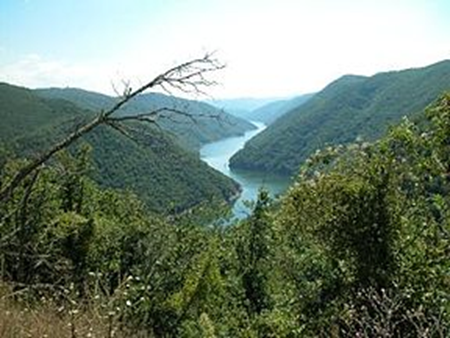Climate Detectives Projects 2022-2023
Project title: Impacts of climate change on preserved areas of the river Nestos
Team: St1
8GH64W9C+8W5 Xanthi Greece 19 Student’s age: 10-11 years old
What are the effects of climate change on vegetation quality, flooding and droughts in environmentally protected areas downstream of the Temeni-Nestos dam?
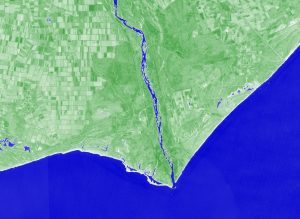
Climate change scenarios predict temperature increases, evaporation scaling and precipitation fluctuations, with the most extreme of these referring to the degradation of the hydrological condition of ecologically important areas and consequently the degradation of their vegetation quality.
In particular, for areas protected by national and international conventions downstream of the Temenius-Nestos dam, potentially significant impacts of climate change can be identified in their vegetation quality and water volume.
Modern studies have shown the sustainability of these areas, but the very high temperatures and prolonged droughts of the last five years raise new questions about the potential impacts of climate change.
Therefore, we investigated the effects of climate change on vegetation quality and water volume in these ecologically important areas over the past five years.
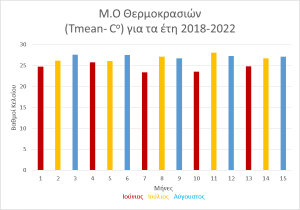
The processing of the data extracted from the Sentinel Hub EO Browser tool and from the 2018-2022 HNMS(Hellenic National Meteorological Service) climate bulletins showed:
1) The total water volume of the Nestos River appears to have remained generally stable even in the extreme climate conditions of the past five years
2) No significant difference in vegetation density and water volumes of the areas of interest except for the small freshwater lakes around the river delta in the year 2020, where a slight acreage reduction was detected.
3) Higher temperature and lower precipitation values were recorded in the summer and winter months of 2020, respectively.
4) The above shows that the sustainability of ecosystems under climate change conditions was not compromised
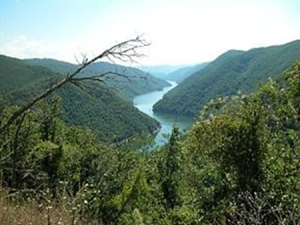
The volume of water entering the Greek part of the basin is determined on a percentage basis over the waters of the Nestos River formed in Bulgarian territory. Based on historical data, the average annual run-off of the river is estimated at 1,5 billion m3 and Greece is agreed to receive 29% of this run-off. The volume of the average annual flow is reviewed every seven years by a Joint Committee on Hydroeconomics.
Although the Greece-Bulgaria agreement refers to measures aimed at the sustainability of ecosystems, no alternative scenario has been considered for the protection of ecosystems in the event of extreme weather events such as floods and droughts.
Although our measurements have shown the sustainability of ecosystems over the last five years, it is our belief that climate change is a real and ongoing threat to the sensitive ecosystems of the Nestos River.
We, therefore, recommend constant vigilance with more frequent measurements similar to ours and the study of the ecologically important ecosystems of the Nestos River.
Readiness to renegotiate the percentage of the volume of water entering the Greek part of the Nestos basin.
The implementation of educational programmes for all educational levels with an environmental orientation to increase the relevant knowledge of students, achieve a change in their attitudes towards the environment and cultivate environmental skills.
https://blogs.sch.gr/9dimxant/2023/04/24/climate-detectives/
Projects are created by the teams and they take the full responsibility of the shared data.
← All projects


